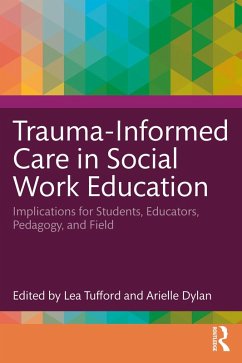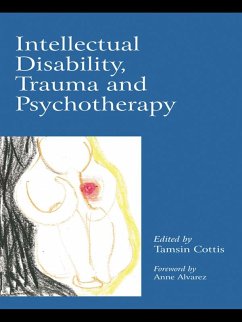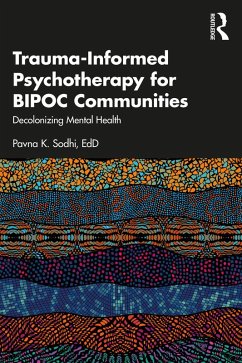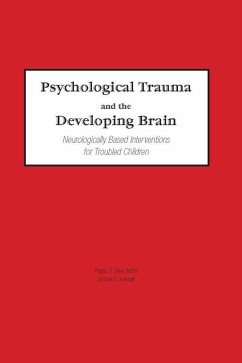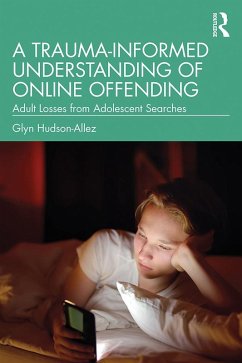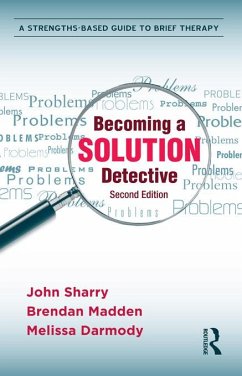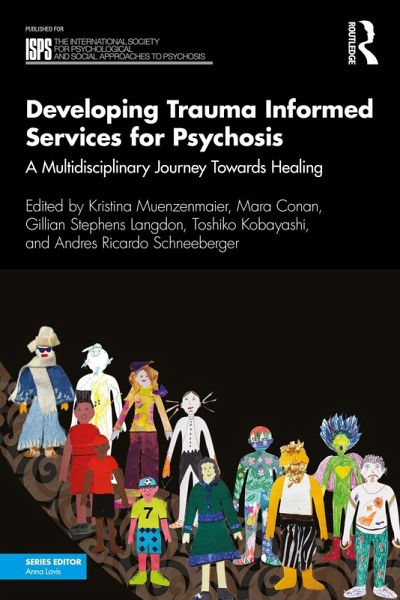
Developing Trauma Informed Services for Psychosis (eBook, ePUB)
A Multidisciplinary Journey Towards Healing
Redaktion: Muenzenmaier, Kristina; Ricardo Schneeberger, Andres; Kobayashi, Toshiko; Stephens Langdon, Gillian; Conan, Mara
Versandkostenfrei!
Sofort per Download lieferbar
31,95 €
inkl. MwSt.
Weitere Ausgaben:

PAYBACK Punkte
16 °P sammeln!
A multidisciplinary group of clinicians explore the connections between traumatic experiences and psychosis, charting the development of a series of interventions designed for both inpatients and outpatients over the course of two decades.Developing Trauma Informed Services for Psychosis details how clinicians developed a trauma committee in a public mental health facility and implemented trauma informed policies and practices, including assessments and multimodal treatment options. Chapters outline trauma informed approaches that include individual, group, and family modalities. Emphasis is o...
A multidisciplinary group of clinicians explore the connections between traumatic experiences and psychosis, charting the development of a series of interventions designed for both inpatients and outpatients over the course of two decades.
Developing Trauma Informed Services for Psychosis details how clinicians developed a trauma committee in a public mental health facility and implemented trauma informed policies and practices, including assessments and multimodal treatment options. Chapters outline trauma informed approaches that include individual, group, and family modalities. Emphasis is on core aspects of programming such as building safety, establishing trusting relationships, and empowerment. One survivor's descriptive account as well as service users' and therapists' experiences are brought to life through personal narratives and fictionalised vignettes. This volume advocates for a multidisciplinary approach that fosters the development of unique treatment paradigms and leads to a dynamic interplay between verbal and creative arts therapies.
This book will be of interest to clinicians, administrators, students, caregivers, and anyone interested in the intersection between therapy and the arts.
Developing Trauma Informed Services for Psychosis details how clinicians developed a trauma committee in a public mental health facility and implemented trauma informed policies and practices, including assessments and multimodal treatment options. Chapters outline trauma informed approaches that include individual, group, and family modalities. Emphasis is on core aspects of programming such as building safety, establishing trusting relationships, and empowerment. One survivor's descriptive account as well as service users' and therapists' experiences are brought to life through personal narratives and fictionalised vignettes. This volume advocates for a multidisciplinary approach that fosters the development of unique treatment paradigms and leads to a dynamic interplay between verbal and creative arts therapies.
This book will be of interest to clinicians, administrators, students, caregivers, and anyone interested in the intersection between therapy and the arts.
Dieser Download kann aus rechtlichen Gründen nur mit Rechnungsadresse in A, B, BG, CY, CZ, D, DK, EW, E, FIN, F, GR, HR, H, IRL, I, LT, L, LR, M, NL, PL, P, R, S, SLO, SK ausgeliefert werden.




